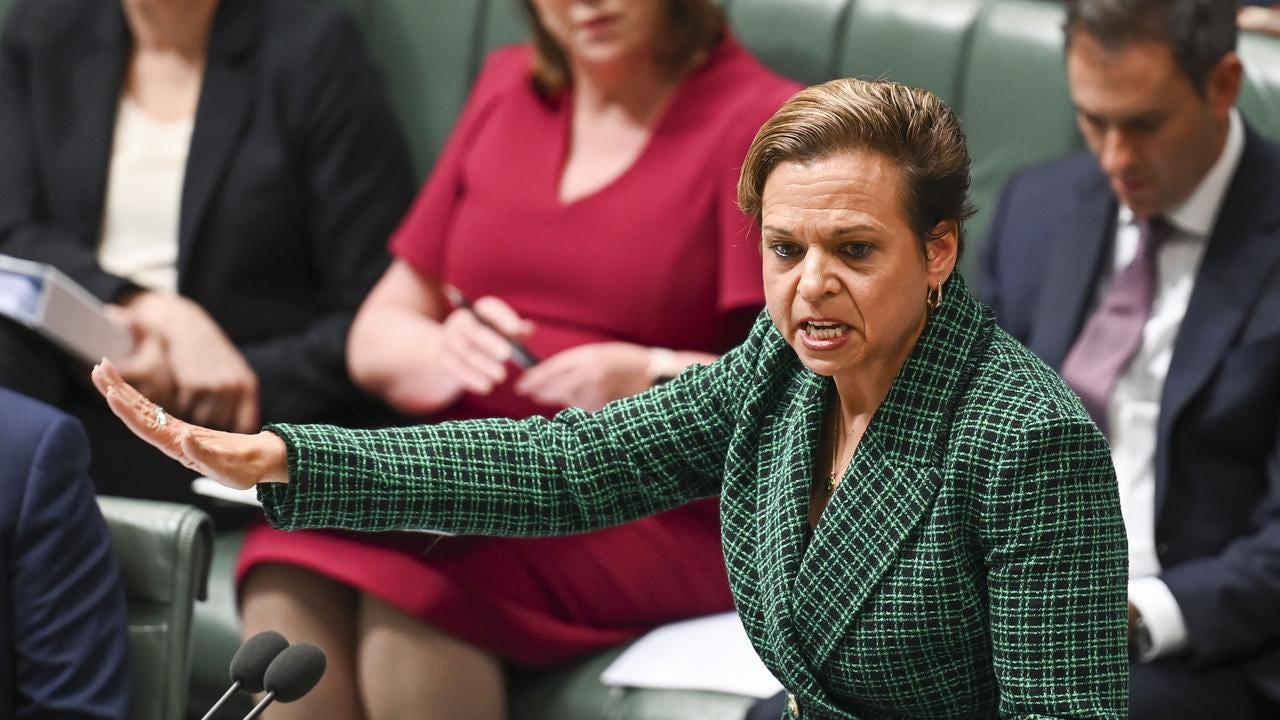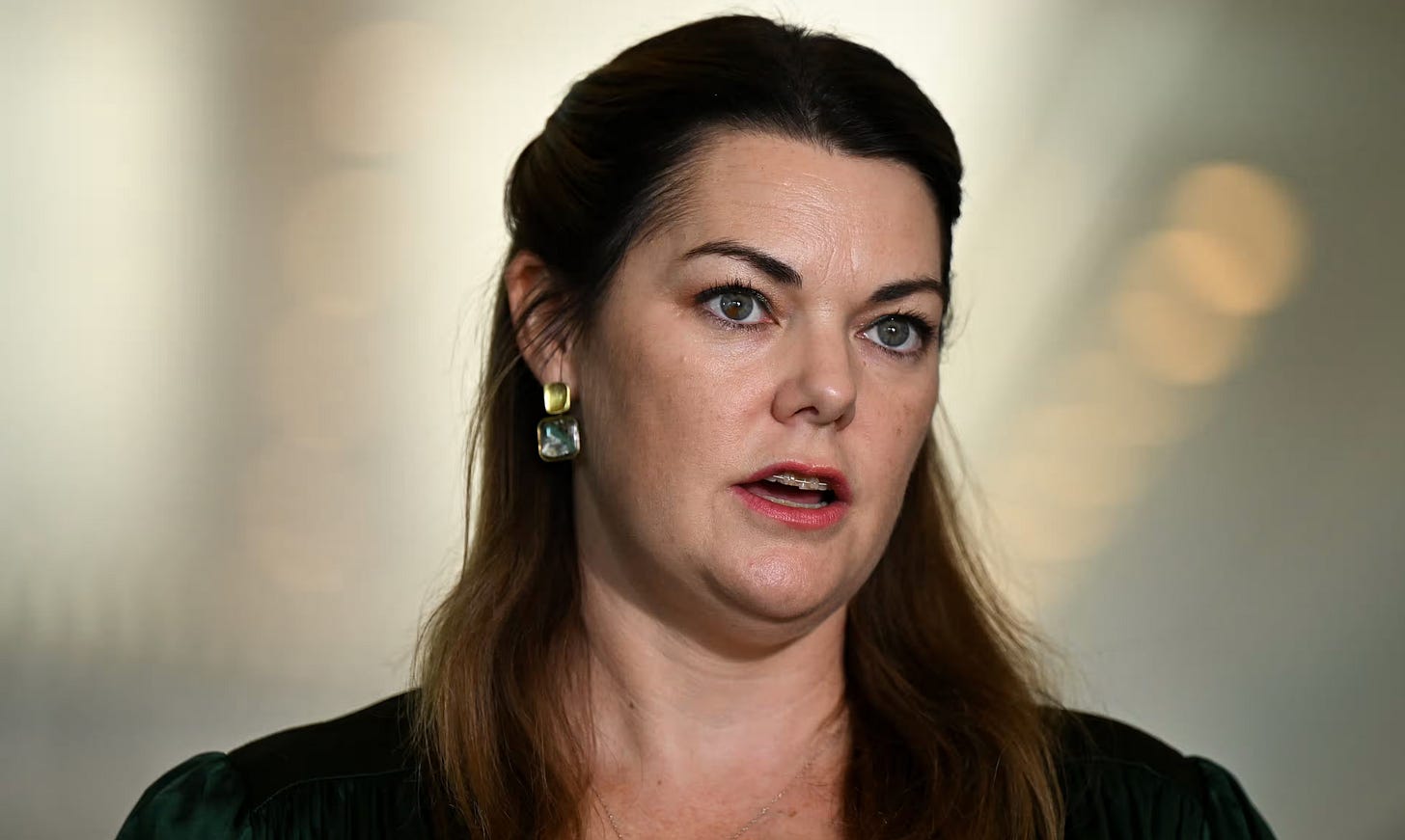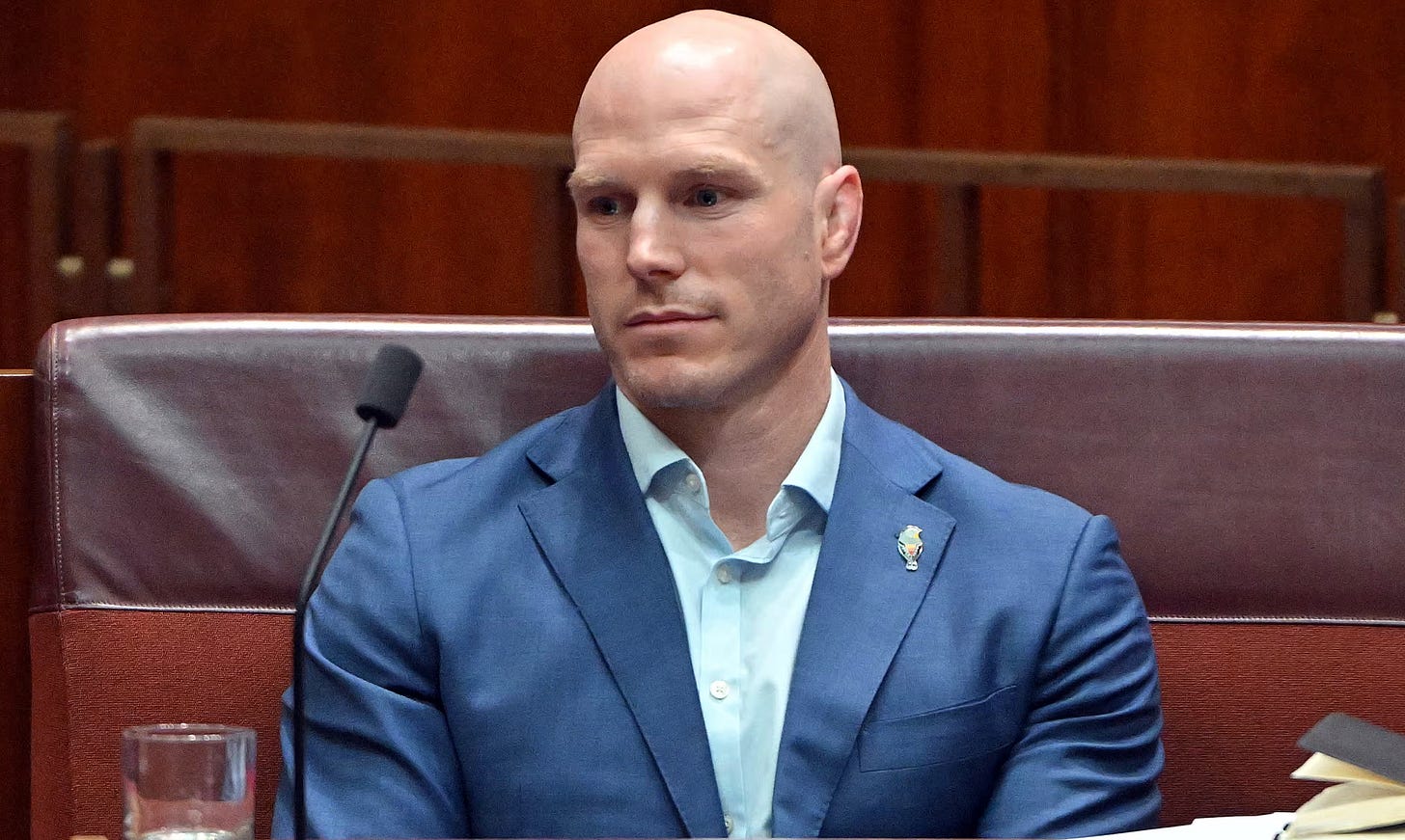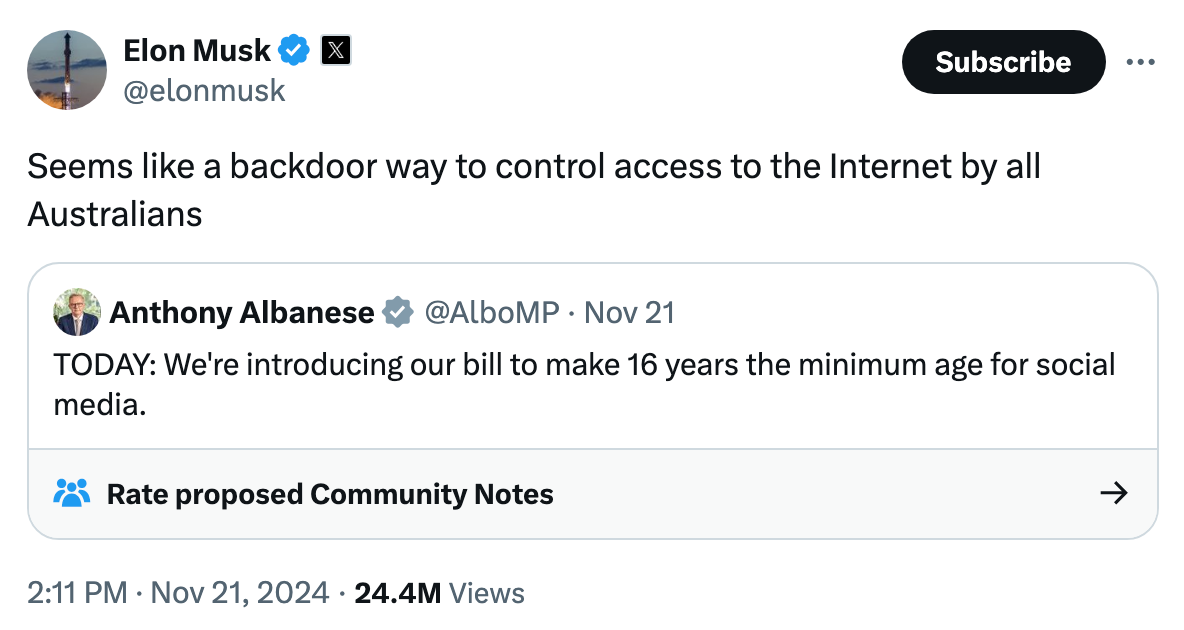Free speech win Down Under as misinformation bill is binned for good
Community backlash was a factor, with over 30,000 public responses to the inquiry into the bill
In a win for free speech advocates, the Australian Government formally abandoned its misinformation bill over the weekend, after failing to secure support in the Senate.
The proposed laws would have forced social media companies to show that they were preventing the spread of misinformation and disinformation on their platforms, with fines of up to 5% of global revenue for non-compliance.
The controversial bill was opposed by the Coalition (conservative Liberal and National Parties) but after several amendments, it sailed through the House of Representatives earlier this month with the support of Labor (centre left) and the Teals (the Greens did not participate in the vote).
However, by last week it was clear that Labor’s bill would not enjoy the same success in the Senate, as critical support from independent crossbench senators collapsed. The Greens’ announcement on Friday that the Party would not support the bill was the final nail in the coffin.
“Based on public statements and engagements with Senators, it is clear that there is no pathway to legislate this proposal through the Senate,” said Communications Minister Michelle Rowland in a statement withdrawing the bill on Sunday, the day before it was to be voted on in the Senate.
The bill has been so roundly rejected by the Senate that a motion was passed on Monday to acknowledge the “shocking flaws” in Labor’s misinformation bill, and for the government to “categorically rule out reintroducing it.”

High level of community concern
According to research by the Australian Media Literacy Alliance oft-cited by Rowland, 80% of Australians want the government to do something about misinformation and disinformation online - but this bill was not it.
The Senate inquiry into the bill drew more than 30,000 responses, indicating “significant public interest and community concerns,” according to a report handed down by the committee on Monday.
By comparison, fewer than 100 submissions were made during consultation on Digital ID legislation.
Just over 8,000 of these submissions were submitted by individuals or organisations, while a further 22,000 were submitted through various campaigns. The committee published only 105 of the submissions it received, tracking a recent trend of Senate committees selectively withholding submissions from the Parliament website (this may in part have been due to the tight turnaround time for the inquiry).
Additionally, some senators said they had received “thousands” of calls and emails asking them to vote against the bill.
An earlier version of the bill released by the Australian Communications and Media Authority (ACMA) in 2023 drew a similarly strong response, attracting approximately 23,000 submissions to the consultation. However, the government hoped to win support for its revamped bill this year by strengthening protections for free expression.
Carve outs for satire, parody, news content, academic, artistic, scientific, and religious content were intended to “carefully balance the public interest in combatting seriously harmful misinformation and disinformation with the freedom of expression that is so fundamental to our democracy,” said Rowland when the bill was reintroduced in September.
But the committee noted that concerns over the impact of the proposed laws on freedom of expression had not been allayed, with a plurality of community and professional groups - including human rights groups, religious groups, medical unions, and law societies - worried that speech protections were not adequate.
Other criticisms raised during the inquiry included: the overly broad definitions of “serious harm,” “misinformation,” and “disinformation;” the inclusion of “opinions” in content that would be censored; lack of transparency in the ACMA’s decision-making processes; the prospect of the government’s misuse of powers; and that the exemption of powerful media corporations from the rules would give billionaire oligarchs an unfair advantage over smaller, independent news operations.
In additional comments, Liberal Senator Dave Sharma said that while the committee’s report had made a “valiant attempt to construct support for the legislation,” the truth was that “almost no witnesses who appeared before the committee were prepared to speak in support of it.”
Despite the committee’s view that “doing something is better than doing nothing when it comes to keeping Australians safe online,” given the lack of support for the bill in the Senate, the sole recommendation of the report is that the bill be “withdrawn immediately.”
‘Gaping hole at the heart of the bill’
One of the main sticking points during the Senate inquiry into the bill was the fact that it would require social media platforms to arbitrate whether information should be censored or downranked, without clear explanation as to how they were expected to do this.
Legal expert James McComish from the Victorian Bar said that the bill didn’t lay out exactly how truth would be determined by social media platforms.
“That is the gaping hole at the heart of the bill. For it to be shown that any content is misinformation or disinformation, the true position has to be identified,” he told the Senate inquiry into the bill.
The ACMA said it would play no role in arbitrating the true position, but would rather apply a “systems-based approach” that would scrutinise the platforms’ processes for handling misinformation and disinformation.
Constitutional scholar Anne Twomey said that this arrangement effectively put foreign corporations, like Elon Musk’s X platform or Chinese-owned TikTok, in charge of shaping Australia’s public discourse online.
“As a general principle, outsourcing censorship to foreign corporations is generally not a good idea,” Twomey told senators.
Platforms would rely heavily on fact-checkers - as they already do, but this would be enforceable by the ACMA under the new legislation.
But Twomey, an expert frequently called upon for fact-checks, said that in her experience, fact-checkers are often “young kids out of university” who “misunderstand the experts” and “often get it wrong.”
“They're taking on this really important role of making a decision that will lead Meta or Google or whatever to make decisions about what is true and what is false, when the fact-checker themselves hasn't properly understood what the experts have said,” Twomey told the inquiry.
Real problem, wrong solution
Senators opposing the bill said that while the proliferation of misinformation and disinformation online is a real problems that needs to be addressed, this bill was not the right solution.
“We are concerned this bill doesn’t actually do what it needs to do when it comes to stopping the deliberate mass distribution of false and harmful information,” said Greens spokesperson for communications, Senator Sarah Hanson-Young on Friday.
“It gives media moguls like Murdoch an exemption and hands over responsibility to tech companies and billionaires like Elon Musk to determine what is true or false under ambiguous definitions. It does little to stop non-human actors like bots flooding social media and boosting dangerous algorithms.”
The Greens want “comprehensive reforms that tackle the business models and dangerous algorithms that fuel division and damage democracy, and legislate a duty of care so these platforms prevent harm in the first place,” said Senator Hanson-Young.

Independent Senator David Pocock agreed that the bill took “the wrong approach,” posing a threat to free speech, while at the same time failing to target the underlying issues of algorithm transparency and bot activity.
“I believe that our rights to speech and protest are fundamental to a healthy democracy. As these rights are not legislated, we must be vigilant whenever legislation is put forward that could encroach on these rights,” he said in a newsletter email.
Australia has only a constitutionally implied right to freedom of political communication, which is much weaker speech protection than, say, America’s First Amendment.
However, “Bots do not have a right to freedom of speech and are being weaponised to influence views on different topics, including in elections,” he said, calling for tougher action on bots, and for legislation forcing social media companies “to show us how they are using algorithms to influence users.”

What next?
Despite withdrawing its misinformation bill, the Labor Government has not given up on its stated goal of making Australians safer online.
“The Government invites all Parliamentarians to work with us on other proposals to strengthen democratic institutions and keep Australians safe online, while safeguarding values like freedom of expression,” said Rowland over the weekend.
Rowland put forward several legislative initiatives, including strengthening offences targeting the sharing of non-consensual and sexually explicit deep fakes; a proposal to enforce truth in political advertising for elections; and progressing reforms on the regulation of Artificial Intelligence.
Other legislation in the works that will impact Australian internet and social media users include a move to criminalise doxing, new privacy reforms, and new hate speech laws.
As yet, the government has not indicated any plans to tackle social media algorithms and bots, which senators identified as a high priority.
The Labor Government is also ramming through a bill to enforce a minimum age of 16 years for social media. Despite allowing only a single day for public submissions and two days for Senate review, Crikey reports that the government’s snap inquiry attracted 15,000 responses.
The response to the inquiry was no doubt boosted by Elon Musk’s viral post on X (now viewed over 24 million times) responding to Prime Minister Anthony Albanese with the statement, “Seems like a backdoor way to control access to the Internet by all Australians.”

The Greens have voiced concerns about the bill, but with support from the Opposition, it is expected to pass in Parliament this week. Perhaps the government should not count its chickens yet though, as the Guardian reports that several Nationals MPs have expressed hesitation in supporting the bill.
To support my work, share, subscribe, and/or make a one-off contribution to my Kofi account. Thanks!



Did labor take crib notes from the movie V for Vendetta?
Misinformation Bill BS came from the Covid years. Eerily similar eh?
Now the +16yrs for social media?
Did they watch the movie until the end? Cos it did not go well for the Government.
F'n ayyyyy! 👍
Get a mullet up ya, gubment.